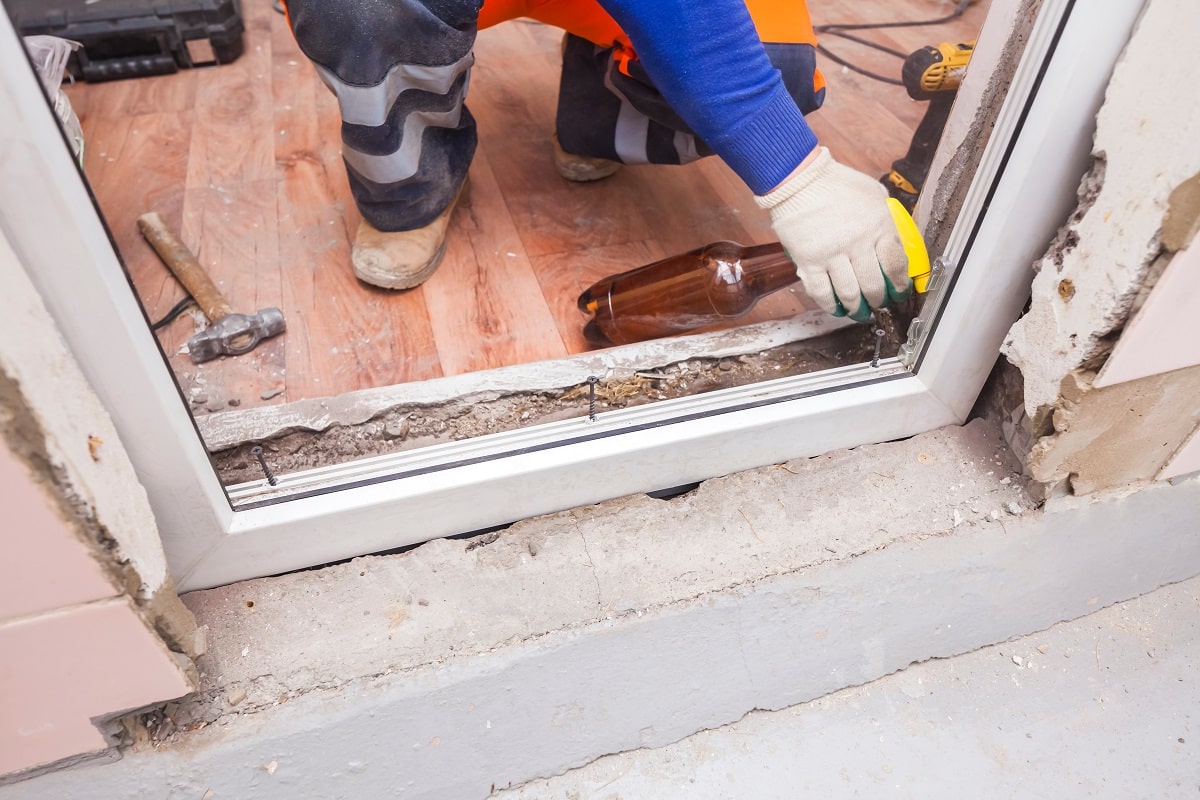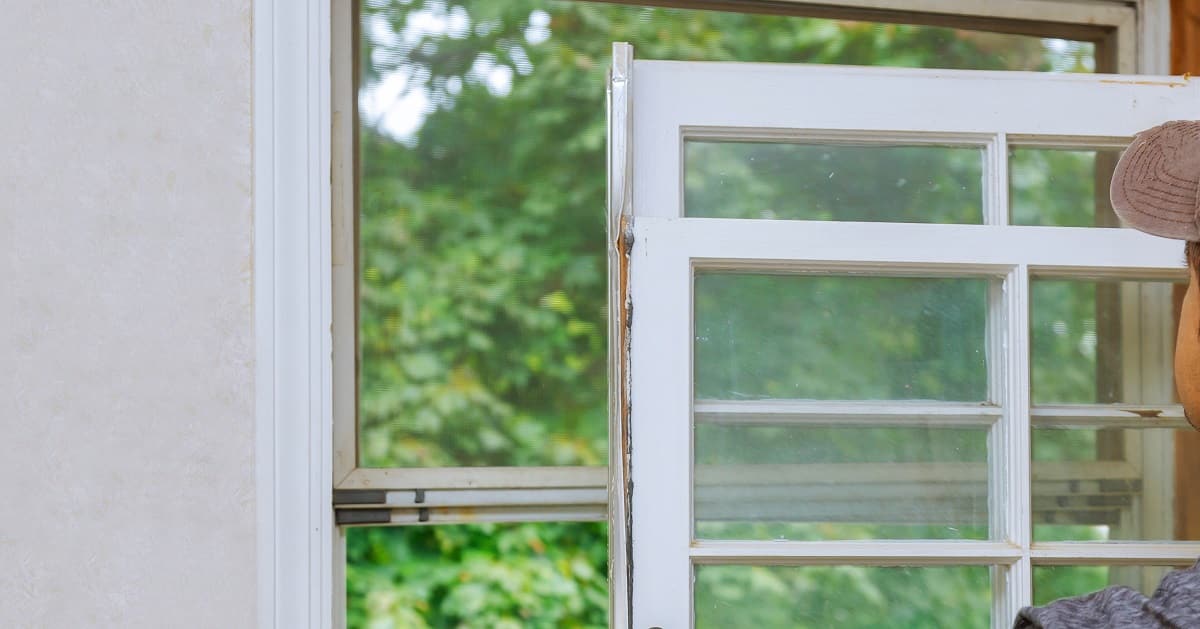If you’re interested in making the most of the home you have or simply looking to replace what you don’t like with something new and improved,renovations are a great way to improve your home. If your roof is leaking, your countertop is cracked or your curtains are torn, repairs and renovations can help restore comfort and beauty. Making your home more functional, healthier & better suited to your needs is at the heart of home renovation.
What is a Home Renovation?
A home renovation is an update to a property that brings it up to the standard of modern day living. The word ‘renovation’ itself means to renew or restore something back to its original state, so when you undertake any home renovation project you are essentially bringing your house up to the standards of modern day living. This is why undertaking a home renovation project (whether it be inside the home or outside) can be so rewarding and provide you with more than just an aesthetic updated look on your property; it can actually increase the value of your property for less cost than building a brand new home from scratch.
What is the difference between a renovation and improvement?
Improvements to your property can increase its value. However, there is a difference between an improvement and a renovation. Whilst both can alter the appearance of your home, there are fundamental changes in the way each one will affect your home’s value. On the whole improvement refers to any change that doesn’t affect the structure of your home. So it’s important to know the difference between the two, and make sure you get the right advice.
For example, if your kitchen is falling apart and you decide to replace it with the same model, that is not a renovation—it’s an upgrade with NO marketable value. A true renovation involves changing the layout, structure or function of the home. There are specific regulations in place for renovations as they can affect zoning laws, visitor codes (for rentals), disability access, etc. If you have any questions or concerns about what can be done to the property, our team of highly trained renovation professionals will be able to ensure you’re on track before proceeding.
Things to Consider Before You Renovate
You’ve been living in your house for years and decide it’s time to renovate. You know what you want, but how do you achieve that?
Things to consider before you renovate will help you get started and provide a detailed roadmap of what to do and where to start. Here are some things to consider:
A Building Survey is Vital
Did you know that only a building survey can tell you the full history of your property? It’s an expert assessment and can reveal any hidden problems affecting your home. A surveyor’s report will give you valuable information on what’s causing crumbling plaster, cracking ceiling joists or leaky windows.
Before you start renovating, it’s important to have a building survey to identify any structural defects or problems. This will help take the worry of hidden defects away and enable you to make informed decisions. The majority of renovations that go wrong are the result of poor planning. The same goes for building surveys and it’s something you can’t ignore as it will be the basis for not only your renovation budget, but also any planning permission necessary to complete your proposed works.
Be Prepared for Competition
Upgrading your interior spaces is a great way to increase the value in your home. Whether you’re looking to sell soon or change the function of a room, make sure you’re prepared for the competition, as you will have a lot of contractors bidding for your project. Take a proper look at their portfolio and be sure to ask friends and family members before hiring.
Be Sure You Are Ready Before Starting Work On Your Renovation
A renovation is a big, exciting project. But it does require some planning and good decision-making skills. If you just want to do the renovation yourself, you’ll need to have the skills and time to manage the project. It’s no secret that renovating a property is fun and exciting, but it can also be stressful.
Pause Before Starting Work on Your Renovation: Gain insight into how renovations affect value and what homeowners can do to maximise their investment and pleasure while minimising the risk.
Budget
Before you renovate your home, it’s important to know the cost to update a few of the smaller things, like moving electrical outlets and adding other features such as towel racks and extra lighting. Without a budget, you may not have enough money to remodel your entire home or just enough to do select parts of it. The cost of renovation depends on the type of equipment that you need done before setting a budget, determining the types of work that you want done.
Beware of Damp
Before you start any renovations, you need to make sure that the walls are completely dry. Bricks, concrete & cement are all porous materials so they will always be damp if your floors are wet or potentially leaky. Tap on your walls with your knuckle (closet walls in particular) and if you hear a dull thud it’s likely to be damp – in which case the mortar has already deteriorated and is in urgent need of replacing; If you have a soft surface on top but still hear a dull thud then this indicates that the sub-floor requires repairs, including possibly replacement.
Take Out Adequate Insurance
Before you start any home renovation project, make sure you’re covered! Up to 10% of the cost of a home renovation can be lost if an insured natural disaster strikes in the first year after you move into your new place.
You Don’t Always Need Planning Permission
A home renovation doesn’t always need planning permission. Each local authority has its own rules for when you need to apply for it. Before you start any home renovation make sure that you check the rules with your local council.
Which Home Improvements Add Value to Your Property?
- Minor kitchen remodel.
- Window replacement.
- Deck, patio, or porch addition.
- Entry door replacement.
- Garage door replacement.
- Roof replacement
- Adding stone veneer
- Basic updates like paint, minor fixes, and fixture replacements
Which Home Improvements May Not Add Value to Your Property?
- Swimming Pools
- Garage Conversions
- Lavish Lighting Fixtures
- Too Much Wallpaper
- Texture on the Walls and Ceilings
- Quirky Tiling
- Too Much Carpeting
- Combining Bedrooms to Create a Bigger Room
What are the Benefits of a Home Renovation?
To improve the home’s efficiency
Home renovation improves the efficiency of the house by installing energy efficient appliances and lighting fixtures. It enhances the comfort of your home by adding much needed insulation in some areas.
To improve the style of the home
With home renovations, you can give your home a breath of fresh air. It will enhance the appearance of your home and increase the value. Furthermore, it allows you to customize your home according to your needs and comfort.
To improve the home’s function
Make your home functional! Some of the most significant benefits derived from a home renovation are in terms of how it affects the way your home works. When you renovate your home, the systems and features of your new or renovated home work better for you and your family.
To increase home value
What’s your home worth? It’s not just about the footprint of your house. Your home is a reflection of how you live and what values matter most to you. If you are looking for ways to boost the market value of your property, whether you intend to sell in the future or not, the right renovations will guarantee an increase in value.
To increase the enjoyment and comfortability of your home
A true renovation is about more than just filling your home with ‘stuff’. A well-conceived, thoughtful renovation can re-energize and transform the ways you live, work and play, so your family and guests have a more enjoyable experience at every turn.
Home Renovation Mistakes to Avoid
Home renovation can be a great way to bring the comforts of home into your life. Unfortunately, it can also lead to serious mistakes that can ruin the home you’ve worked so hard to create!
Here are common mistakes to avoid when renovating.
- Starting renovations too soon
- Underestimating costs
- Expecting everything to go according to plan
- Not hiring a designer from the start
- Going for the lowest bid
- Pretending to understand a design scheme
- Making too many changes along the way
- Not setting up a timeline
- Sweeping interiors under the rug
- Splurging where you should save
Wrapping Up
When it comes to buying a home, it’s important to consider whether or not you will need to renovate your new home. The cost of the renovations can add up quickly and can mean spending thousands of pounds. Knowing what your renovation needs are before you buy a home can save you time and money in the long-run.









